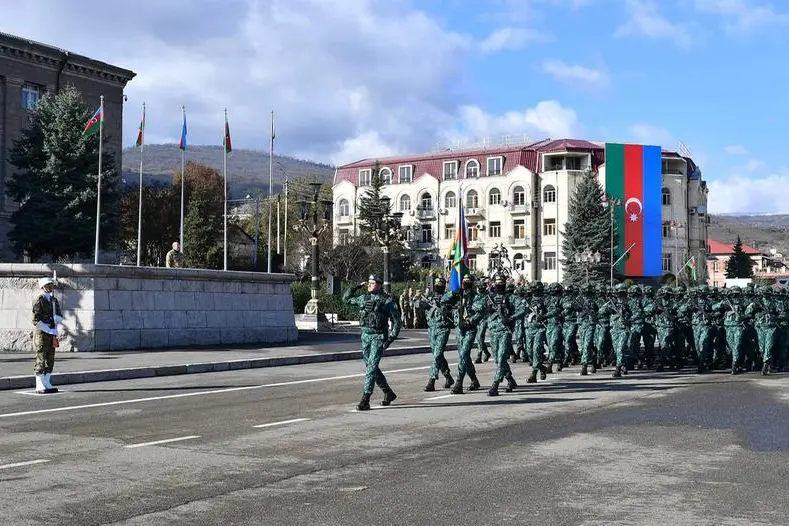PHOTO
Armenia and Azerbaijan's foreign ministers are due to hold peace talks in Berlin on Wednesday, in a new push to resolve a decades-long conflict between the neighbouring Caucasus countries.
The dialogue involving Armenia's Ararat Mirzoyan and Azerbaijan's Jeyhun Bayramov builds on a surprise direct meeting between the two nations' leaders on the sidelines of the Munich Security Conference earlier this month.
Under German Chancellor Olaf Scholz's mediation, Armenian Prime Minister Nikol Pashinyan and Azerbaijani President Ilham Aliyev had agreed then to push on with peace negotiations.
The leaders also pledged to resolve differences "exclusively through peaceful means and without the use of force," Scholz's spokesman had said.
The Munich meeting had marked a sharp easing of tensions after a new spate of volatility on the border region, when both sides accused each other of opening fire. Armenia had said the skirmish left four of its soldiers dead.
Armenia and Azerbaijan fought two wars, in the 1990s and in 2020, before Azerbaijani forces last September retook control of the breakaway region of Nagorno-Karabakh in a lightning offensive that ended three decades of Armenian separatist rule over the enclave.
Tensions between the two countries have remained high since Baku re-captured the region of Nagorno-Karabakh in an operation that triggered the exodus of most of the enclave's entire ethnic-Armenian population -- more than 100,000 people -- to Armenia.
- 'Full-scale war?' -
Yerevan is concerned that Azerbaijan, emboldened by its success in Karabakh, could invade Armenian territory in order to create a land bridge to its Nakhchivan enclave.
Aliyev, who won re-election this month, had said in an inauguration speech it was Armenia, not Azerbaijan, that had outstanding territorial claims.
And Pashinyan had warned after a deadly clash along the two countries' border earlier February that Azerbaijan was preparing for a "full-scale war" with its historic foe.
In Berlin, Foreign Minister Annalena Baerbock will hold talks separately with her Armenia and Azerbaijani counterparts, before bringing them both together for a trilateral discussion.
Baerbock, who will host the two-day peace talks, travelled to both countries in November to urge the arch-foes to revive dialogue.
Pashinyan and Aliyev previously said a peace agreement could have been signed by the end of last year, but internationally mediated peace talks have failed to yield a breakthrough.
Until Aliyev refused to attend a round of peace talks in Spain in October, the European Union and United States had played a lead role in mediating Azerbaijani-Armenian normalisation talks.
The traditional regional power broker Russia -- bogged down in its Ukraine war -- has seen its influence waning in the Caucasus.





















